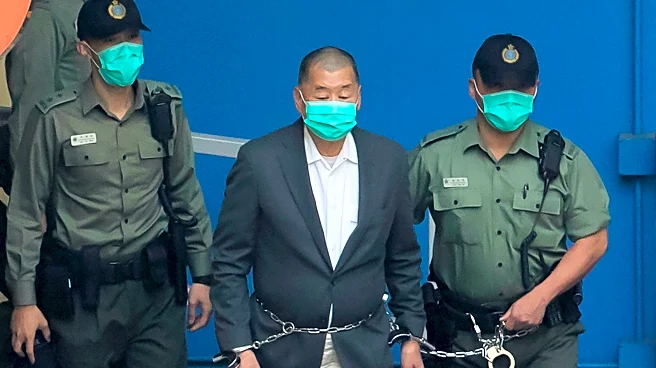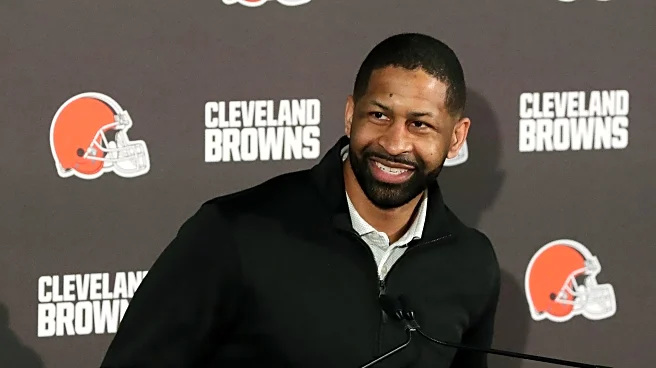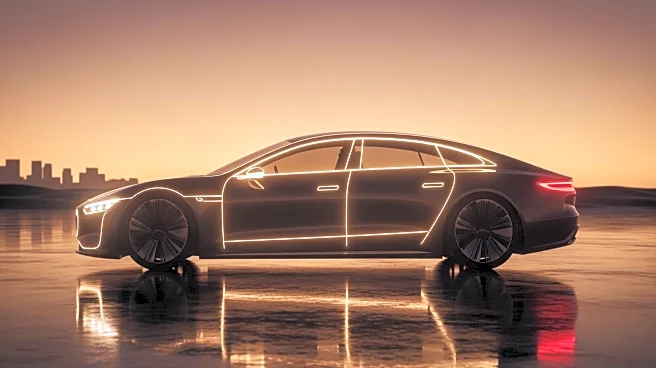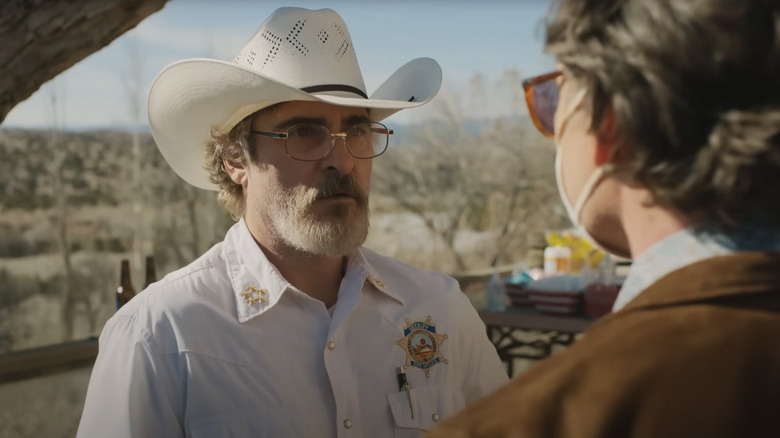
Director Ari Aster is best known by audiences for scaring the hell out of them with the unsettling horror of "Hereditary" and "Midsommar," but in the past few years, he's shifted out of horror and into
territory that's a little harder to define.
In 2023, the filmmaker teamed up with Joaquin Phoenix for "Beau is Afraid," a surreal film that certainly has terrifying moments and concepts as it tells the story of a man on a mystifying personal journey as he returns home following the sudden death of his mother. But that was far from a straight-up horror movie. In fact, even Aster himself has admittedly had trouble characterizing the film's genre, as he once said in an interview with the Academy of Motion Picture Arts & Sciences, "I don't know what it is. I think if it belongs to a tradition, I guess it's that of the picaresque. I wanted to make something that was funny and sad, how's that?"
While critics and audiences were both much more divided on "Beau is Afraid" than either of Aster's previously lauded efforts to terrify us, it's "Eddington" (in theaters now) that will undoubtedly be the director's most divisive film yet, if only because of the nature of the film's story.
"Eddington" is a twisted neo-Western that unfolds in May 2020 in the titular New Mexico town at the height of the coronavirus pandemic. Social, political, and emotional tensions run high, sparking a standoff between a small-town sheriff (Joaquin Phoenix) and mayor (Pedro Pascal), each with their own axes to grind in a campaign for the next mayoral election. Making things even more complicated is the rise of the Black Lives Matter movement, which sets the stage for escalating confrontation in this dusty desert locale.
Just the table-setting for the story is enough to ruffle feathers, but Aster's film digs into the questionable and concerning rise in paranoia and anger that plagues society as a whole, regardless of which side of the political aisle people find themselves. "Eddington" is a movie that might get criticized for being apolitical, which is actually more of a feature than a bug, but it undeniably has something to say about the cultural shift brought about by the pandemic and what it has done to society at large.
Leading up to the film's release, I sat down with Ari Aster in Chicago to talk about his cinematic influences and the driving force behind the film's controversial story. Plus, we touch upon what is sure to be one of the most divisive developments in the movie, and we shift into lighter territory by having him tell me some of his favorite comedies.
Note: This interview has been lightly edited for clarity and brevity.
Read more: The 10 Best Movies Of All Time, According To IMDb
Ari Aster Was 'On Twitter A Lot' And Felt Like He Was 'Going Insane' Before Writing Eddington
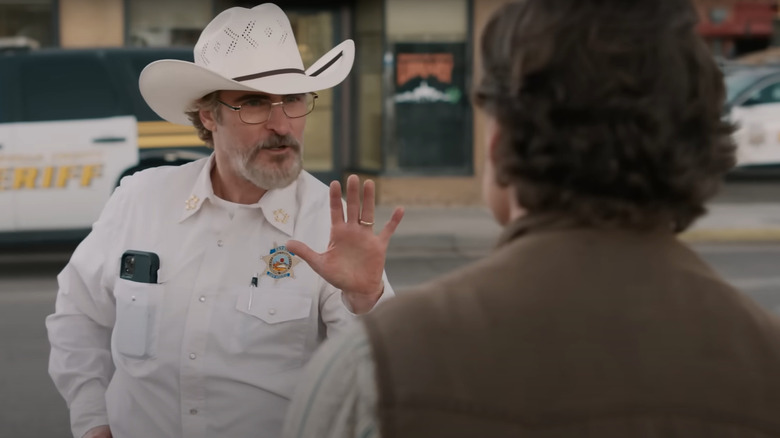
This is a big movie, and it's so much different from what you've done before. I've heard you talk about in interviews how going back to New Mexico during the pandemic was really what the impetus was for this movie, but I was curious what your biggest cinematic influence was when making this one.
Ari Aster: To be honest, it didn't begin with a cinematic influence. It didn't begin with me saying, "I want to make a film in this vein." It was me living on, I mean, to be honest, Twitter. I was on Twitter a lot. I never posted. I would retweet things sometimes. And I was feeling myself going insane. And I basically wanted to make a movie that kind of was gripped by Twitter. Then from there I started thinking about Western tropes. So then you think about different films. What is a Western in its bones? Then you want to kind of let go of that and just tell the story.
But I would say certain films kept coming to mind as I was writing it, where I thought like, "Oh, I really like the atmosphere of this film." Like for instance, "JFK" by Oliver Stone.
Yeah, for sure.
That's a controversial movie, because it's sort of like a rat king of different conspiracies, some of which contradict each other. So it's been widely discredited. A lot of people consider [Kevin Costner's character] Jim Garrison to be a lunatic, but the film bathes him in this heroic light. But all of that makes the film for me more interesting. And the film is, I think, special and kind of important in the way that it captures the fever of conspiracy thinking. I feel like that fever has gripped America in a new way, and in a way that has kind of warped and distorted with the internet. So a thought kind of occurred to me, like, "Huh, I feel like we're all living in 'JFK' now," in the environment of that film.
Yeah, 100%.
And we're all a different version of Jim Garrison -- some of us more than others. But we all know that something's wrong, and we all can feel that there are pretty sinister forces guiding things along. "Guiding" being a pretty gentle word for I think what's happening. So for me, the movie is about a bunch of people who really care about the world and really feel and know in their bones that something is wrong, but they're looking at the world through different windows. The windows are distorted and they are strange, and none of them agree on what that thing is that is wrong.
It's a genre film that begins with a bunch of people who are standing in opposition to each other, and then it allows them to start bumping into each other. I was interested in kind of seeing where that went. What is the logic that comes out of that conflict once those atomized forces begin to bump against each other? And that logic that grows, that comes to grip all of them and push them deeper into their paranoia and their convictions, that leads to violence, because there's nothing in the air that's holding anybody together anymore. So that's my non-answer to your question, what were my influences?
Aster Deliberately Wanted Eddington To Feel Like 'A Rorschach Test'
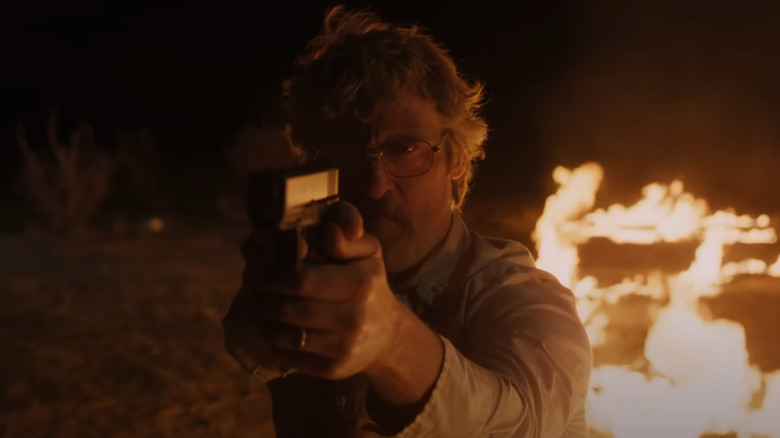
No, that's a perfect answer. And I think one of the interesting things you said is, you have all these different perspectives, they all feel like something is wrong and they're trying to figure out what that is, and heir approach to it varies from character to character. The one thing I also noticed with each character is they all kind of have their own dissatisfaction with something in their life that feels like it leads them to buy into something that maybe they otherwise might not, because they're looking for some sense of purpose, something that fills the void that each of them have.
You have Joaquin Phoenix, who wants to have a kid, and it seems like Emma Stone's character isn't interested in that. You have Cameron Mann's character, who is interested in impressing a girl and is willing to do whatever it takes to get to that next stage. You have Pedro Pascal and his son's characters, they feel like they're trying to fill the void of their wife and mother leaving. It all kind of leads them to make these decisions that maybe otherwise wouldn't make sense for their actual characters, and I found that really fascinating.
That's right, yeah, that's how it is. We're all living in our lives, but we're also in the soup of everything. The two things get all coiled up and mixed up. So yeah, Joe Cross, the character played by Joaquin Phoenix, he is somebody who would've seen all of those Westerns. I think that has informed his own picture of himself. He became a sheriff probably because he loved those films and wanted to be one of those men of action who stand for what's right.
And he loves his wife, but he's very sentimental, which is another way of saying he's not really looking at his life. Right? And he's sentimental about his wife and about what she needs. But in fact, she has very specific needs. She's gone through very specific things that he's not willing to look at or able to look at or that just clash with his worldview. And she's held at a distance from us as well because we're with him. We're in his point of view. So all we can see is what he's seeing with her. But she has her own history that has given her a very specific picture of the world, and she's looking for answers. And somebody comes into her life who has them.
So some of these people are more vulnerable than others. Some of them are more malign than others and more cynical. I think that's one thing that Covid opened up, was multiple spaces for people to come in and provide answers, because we're all so lost. And that's only gotten worse. That hasn't gotten better since lockdown.
Yeah, 100%. You mentioned kind of how we're kept at a distance as far as the things that Joaquin Phoenix doesn't really experience as a character in most cases. One of those exceptions to that, I think, is when you focus in on what we're meant to understand, I believe, is Antifa. The group that flies around in private planes, has false protest signs, is creating these issues. One of the things that I was really interested in is how that threat becomes a threat for both sides in the movie, whether they're trying to create chaos that makes it look like one side is doing something that's terrorist in activity. But also if you're someone who is maybe on their side, but they witness [these violent actions], they're in just as much danger as the people that they're trying to make look bad.
Exactly.
I thought that was really interesting.
Well, thank you. Yeah, I mean, that's where the film kind of becomes suddenly gripped by the paranoia of the characters. We are primarily aligned with Joe Cross and his worldview, right? So when the jet flies in, that's where the film kind of deliberately becomes something of a Rorschach test.
Right.
Right? I think maybe the best way of describing what that test is, suddenly at that point, you're either watching a satire or you're watching a dramatization of what was happening at the time.
Depending on what someone maybe believes. And then they become part of the conspiracy, too.
Yeah, exactly. So it was kind of important for me that the film kind of be so gripped by the fever of that kind of thinking that all those things come to really manifest.
Ari Aster Lists Some Of His Favorite Comedies
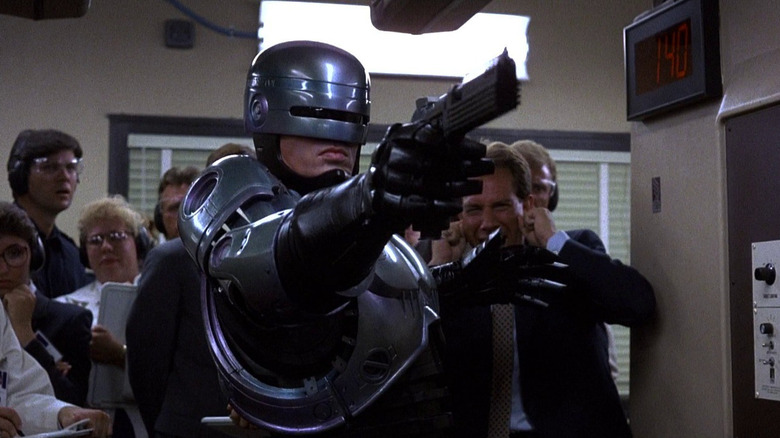
For sure. As I wrap up, just to lighten things, because a lot of the content of your movies, it tends to be darker in tone, so I wanted to actually ask what some of your favorite comedies of all time are?
Great question. I love comedies. I'll just knock some off. "Defending Your Life," "Annie Hall," "Four Lions," "Dr. Strangelove," "Naked Gun." "Airplane," "RoboCop," "Starship Troopers." "After Hours."
Do you ever see yourself venturing into territory like that? Doing something that feels like more of a straight-up comedy, or even something that is like Paul Verhoeven tone?
Well, I think this does --
Yeah, definitely come close to that.
Verhoeven is a hero of mine, somebody I'm always thinking about. And I would say that he was on my mind when I was making this.
For sure.
But no, I mean, this film is a dark comedy. And so I hope that it's funny.
It definitely is.
The laughs should and, for a lot of people, probably do catch in the throat.
"Eddington" is in theaters now.
If you're looking for the easiest way to keep up with all the major movie and TV news, why not sign up to our free newsletter?
Read the original article on SlashFilm.
